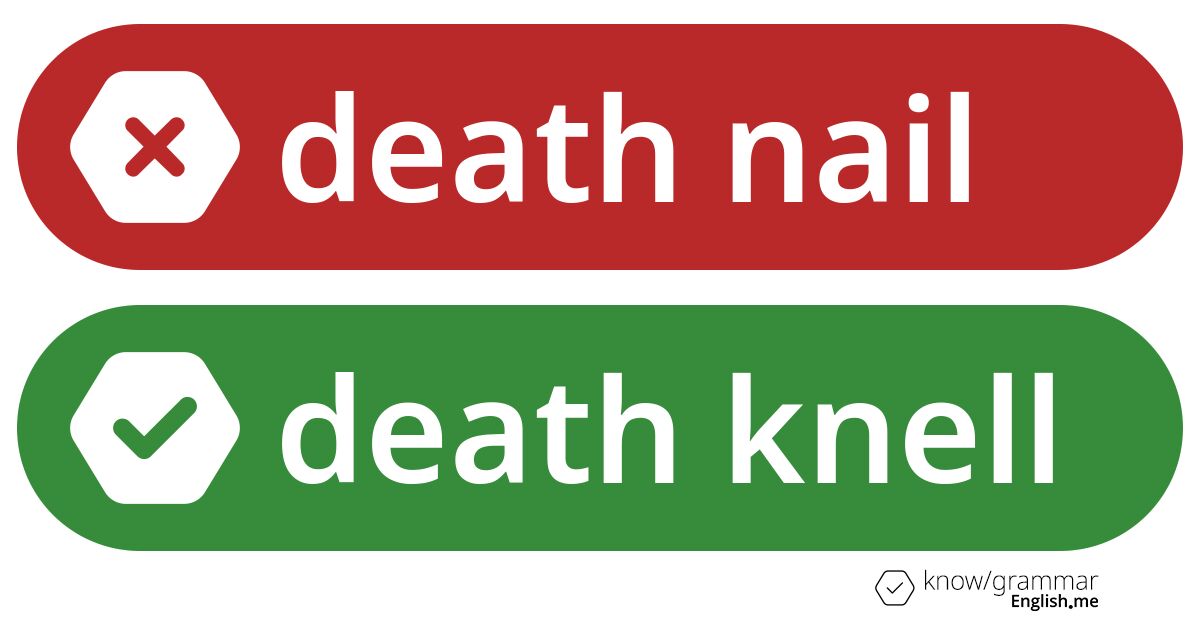Nail in the coffin: dispelling the "death nail" myth
Reviewed and edited by  Lloyd Cooper 17/10/2024, 00:51
Lloyd Cooper 17/10/2024, 00:51
English.me team member
 What kind of error is it?
What kind of error is it?

Malapropism
 Why do people make this mistake?
Why do people make this mistake?
The error likely arises from confusion between similar idiomatic expressions, specifically "death knell" and "last nail in the coffin". People might mistakenly conflate these phrases due to their similar metaphorical meanings related to finality or inevitable doom.
 What is correct?
What is correct?
"Death knell" is the correct expression, which refers to an event or situation that signals the end of something. "Death knell" originates from the historical practice of ringing a bell to announce a death. If referring to the final element that leads to the end of something, "the last nail in the coffin" is correct.
 Examples of correct usage
Examples of correct usage
- The loss of their main client sounded the death knell for the company.
- When the CEO resigned amid scandal, it was the last nail in the coffin for the struggling corporation.

 English
English español
español française
française italiano
italiano deutsche
deutsche 日本語
日本語 polski
polski česky
česky svenska
svenska Türkçe
Türkçe Nederlands
Nederlands